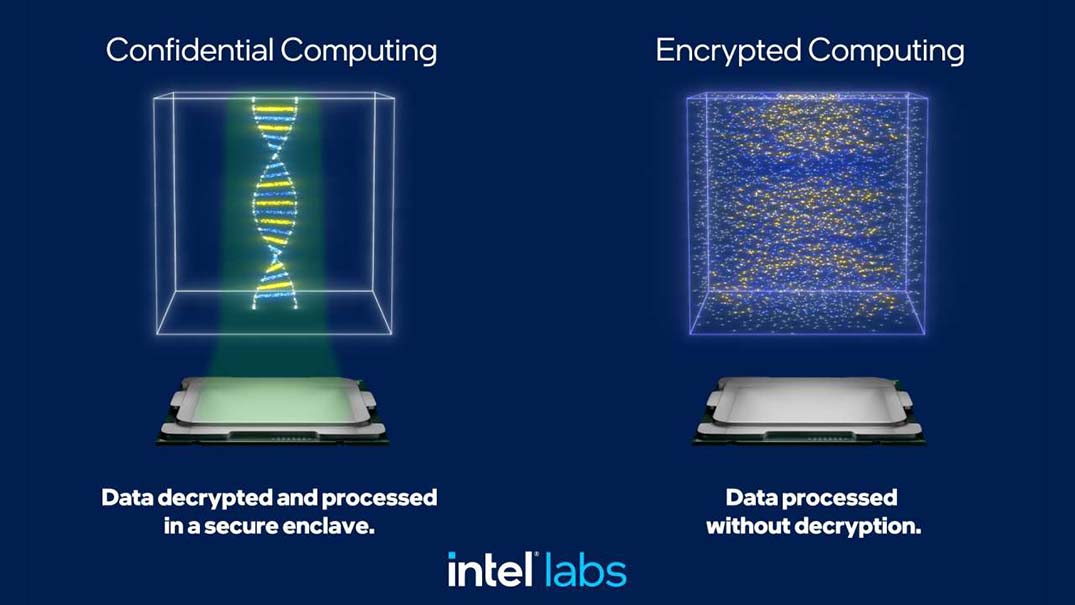Intel has announced general availability of a new attestation service that is part of Intel Trust Authority, which offers unified, independent assessment of Intel’s trusted execution environment (TEE) integrity and policy enforcement, and audit records.
At Intel Innovation 2023, Intel chief technology officer Greg Lavender offered a detailed look at how Intel’s developer-first, open ecosystem philosophy is working to ensure the opportunities of artificial intelligence (AI) are accessible to all.
Developers eager to harness AI face challenges that impede widespread deployment of solutions for client and edge to data center and cloud. Intel is committed to addressing these challenges with a broad software-defined, silicon-accelerated approach that is grounded in openness, choice, trust and security.
By delivering the tools that streamline development of secure AI applications and ease the investment required to maintain and scale those solutions, Intel is empowering developers to bring AI everywhere.
“The developer community is the catalyst helping industries leverage AI to meet their diverse needs – both today and into the future,” Lavender says. “AI can and should be accessible to everyone to deploy responsibly. If developers are limited in their choice of hardware and software, the range of use cases for global-scale AI adoption will be constrained and likely limited in the societal value they are capable of delivering.”
Lavender highlighted Intel initiatives, including Intel Transparent Supply Chain for verifying hardware and firmware integrity, and ensuring confidential computing to help protect sensitive data in memory. Now, Intel is expanding on its platform security and data integrity protection with several new tools and services, including general availability of a new attestation service.
This service is the first in a new portfolio of security software and services called Intel Trust Authority. It offers a unified, independent assessment of trusted execution environment integrity and policy enforcement, and audit records, and it can be used anywhere Intel confidential computing is deployed, including multi-cloud, hybrid, on-premises and at the edge.
Intel Trust Authority will also become an integral capability to enable confidential AI, helping ensure the trustworthiness of confidential computing environments in which sensitive intellectual property (IP) and data are processed in machine-learning applications, particularly inferencing on current and future generations of Intel Xeon processors.
AI is an engine of innovation with use cases across every industry, from healthcare and finance to e-commerce and agriculture.
“Our AI software strategy is founded on open ecosystems and open accelerated computing to deliver AI everywhere,” says Lavender. “There are endless opportunities to scale innovation and we are creating a level playing field for AI developers.”
An open ecosystem
Organisations around the world are using AI to accelerate scientific discovery, transform business and improve consumer services. However, the practical application of AI solutions is limited by challenges that are difficult for businesses to overcome, from a lack of in-house expertise and insufficient resources to properly manage the AI pipeline (including data prep and modeling) to costly proprietary platforms that are expensive and time-consuming to maintain on an ongoing basis.
Intel is a founding member of the Linux Foundation’s Unified Acceleration Foundation (UXL), a cross-industry group is committed to delivering an open accelerator software ecosystem to simplify development of applications for cross-platform deployment.
UXL is an evolution of the oneAPI initiative. Intel’s oneAPI programming model allows for code to be written once and deployed across multiple computing architectures, including CPUs, GPUs, FPGAs and accelerators. Intel will contribute its oneAPI specification to the UXL Foundation to help drive cross-platform development across architectures.
Intel is also collaborating with leading software vendors Red Hat, Canonical and SUSE to provide Intel-optimised distributions of their enterprise software releases to help ensure optimized performance for the latest Intel architectures.
Gunnar Hellekson, vice-president and GM of the Red Hat Enterprise Linux business, has announced an expanded collaboration that will see Intel contribute upstream support for the Red Hat Enterprise Linux (RHEL) ecosystem using CentOS Stream. Intel also continues to contribute to AI and machine-learning tools and frameworks, including PyTorch and TensorFlow.
To help developers scale performance quickly and easily, Intel Granulate is adding Auto Pilot for Kubernetes pod resource rightsizing. The capacity-optimisation tool will offer automatic and continuous capacity management recommendations for Kubernetes users. This will enable them to reduce the investment required to meet their cost-performance metrics for containerized environments.
Intel Granulate is also adding autonomous orchestration capabilities for Databricks workloads, which will deliver an average of 30% cost reduction and 23% processing time reduction with no code changes.1
As the world relies more on AI to solve large and complex problems and deliver real business outcomes, there is a growing need to protect AI models, data and the platforms on which they run from tampering, manipulation and theft. Fully homomorphic encryption (FHE) allows for compute calculations to be performed directly on encrypted data, even though practical implementations are limited by computational complexity and overhead.
Intel plans to develop an application-specific integrated circuit (ASIC) accelerator to reduce the million-fold performance overhead associated with a software-only FHE approach.
The company will also launch the beta version of an encrypted computing software toolkit, which will enable researchers, developers and user communities to learn and experiment with FHE coding. This will come later this year as part of the newly-available Intel Developer Cloud, and will include a set of interoperable interfaces to develop FHE software, translation tools and a sample simulator of its hardware accelerator.

